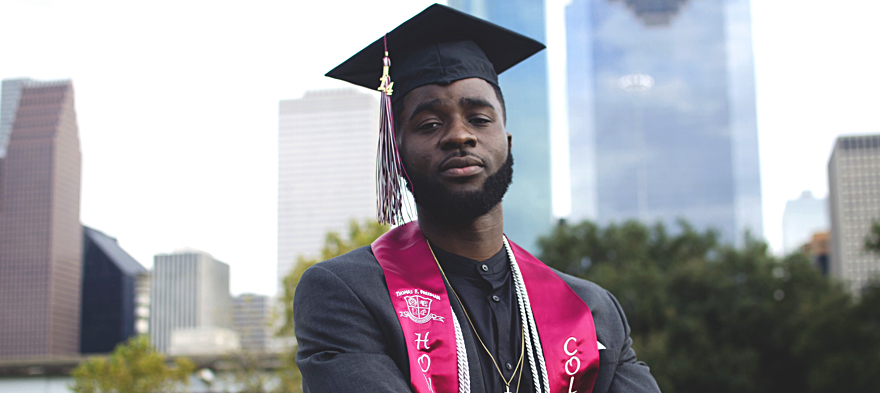
Jul 26, 2019 12:00:00 AM
I don’t know if y’all have noticed, but there’s a growing movement of power and support for the Black educator network around the country.
In the past week alone, my Twitter feed has been full of Black educator excellence and I’m loving it!
I’ve been seeing highlights from the Black Educators Rock Conference that was recently held in Charlotte, North Carolina.
New to the teaching game, Kerry DeSean West kicked off a roll-call of Black educators from around the country and they showed up in droves!
And let’s not forget that our teacher of the year—Rodney Robinson—is a Black educator!
But even in marveling in these magical moments of representation, there’s a stark reality about Black educators we cannot ignore—there aren’t enough of them.
While Brown v. Board was implemented with the intention of giving Black kids access to resources offered at White schools, it inadvertently decimated much of the Black teacher workforce—a blow from which we still haven’t recovered.
Today it’s been proven that Black students benefit tremendously from having Black educators, but only about 7% of teachers in America are Black. And teachers like Brandon Morrison realize that his presence as a Black educator is an anomaly.
While it’s well known that there are a number of barriers hindering Black students from becoming Black educators, I want to talk about college prep—because you can’t become a teacher if you don’t graduate from college.
We’re already familiar with the Opportunity Myth, right? That’s the report from TNTP that showed how so many Black students haven’t been prepared to meet their goals because very few of their assignments are actually on grade-level. Well, add to that the United Negro College Fund’s (UNCF) findings that only 57% of Black students have access to math and science courses needed for college readiness—and we have a recipe for failure.
Oh, and UNCF also found that in 2015, 61% of Black students who took the ACT missed all four of the benchmarks that indicated they were college-ready.
Then, we confirmed that schools with higher populations of low-income students are receiving less funding. They’re on the losing end of receiving high-quality teachers, more rigorous coursework and resources such as school counselors—counselors that often help guide them through the college admissions process.
And remember that little revelation called the “honesty gap”? That situation where states exaggerate proficiency rates but eventually get sold out by NAEP scores? And those grading scandals that pop up all around the country that have parents thinking their kids are passing when they are really being set up to fail? All a mess and all misleading for students who think they are ready to graduate from high school and go off to college.
I did a Google search of “we need more black educators” and 365 million links popped up. I didn’t have time to read them all (lol), but in the first three pages, only a few articles touched on the public school system’s role—or failure—in this matter.
Black kids aren’t being prepared to go to college to be educators—or anything else for that matter. And it’s not a reflection on their abilities—it’s a reflection on a system that doesn’t invest in them, teachers who don’t believe in them and politicians who lie to them.
To the Black educators who have survived this broken system and are doing their thing in the classroom, I salute you. To the policymakers and administrators who claim they want to see more Black educators in classrooms, you’re going to have to do more than tweak your job postings.
Tanesha Peeples is driven by one question in her work—“If not me, then who?” As the former Deputy Director of Activist Development for brightbeam, Tanesha merges the worlds of communications and grassroots activism to push for change in the public education system. Her passion for community and relentless mission for justice and liberation drive her in uplifting and amplifying the voices and advocacy of those that are often ignored. Tanesha wholeheartedly believes that education is the foundation for success. Her grand vision is one where everyone—regardless of ethnicity, socioeconomic status, gender or ZIP code—can have access to a comfortable quality of life and enjoy the freedoms and liberties promised to all Americans. And that's what she works towards every day.
The story you tell yourself about your own math ability tends to become true. This isn’t some Oprah aphorism about attracting what you want from the universe. Well, I guess it kind of is, but...
If you have a child with disabilities, you’re not alone: According to the latest data, over 7 million American schoolchildren — 14% of all students ages 3-21 — are classified as eligible for special...
The fight for educational equity has never been just about schools. The real North Star for this work is providing opportunities for each child to thrive into adulthood. This means that our advocacy...
Your donations support the voices who challenge decision makers to provide the learning opportunities all children need to thrive.
Ed Post is the flagship website platform of brightbeam, a 501(c3) network of education activists and influencers demanding a better education and a brighter future for every child.
© 2020–2024 brightbeam. All rights reserved.
Leave a Comment